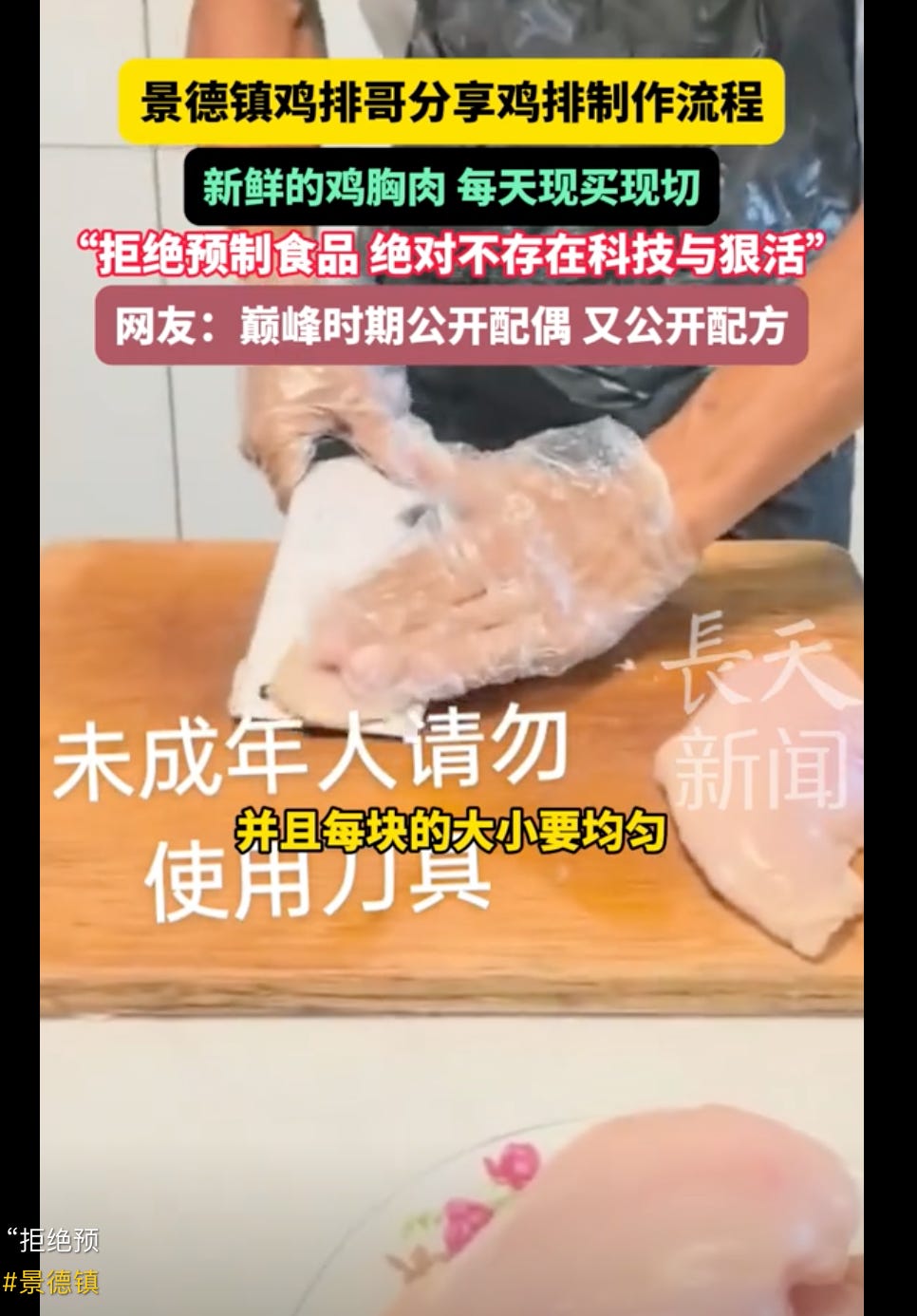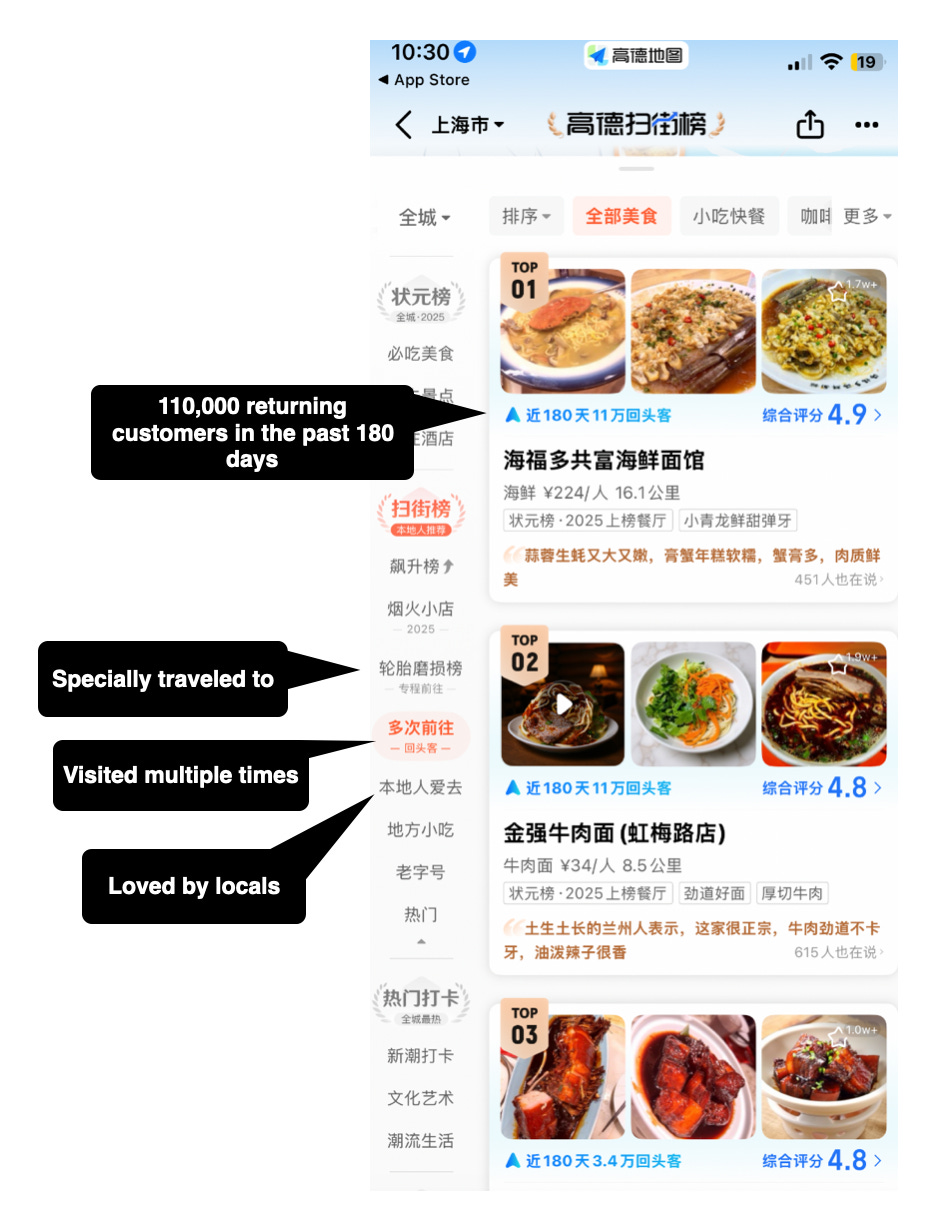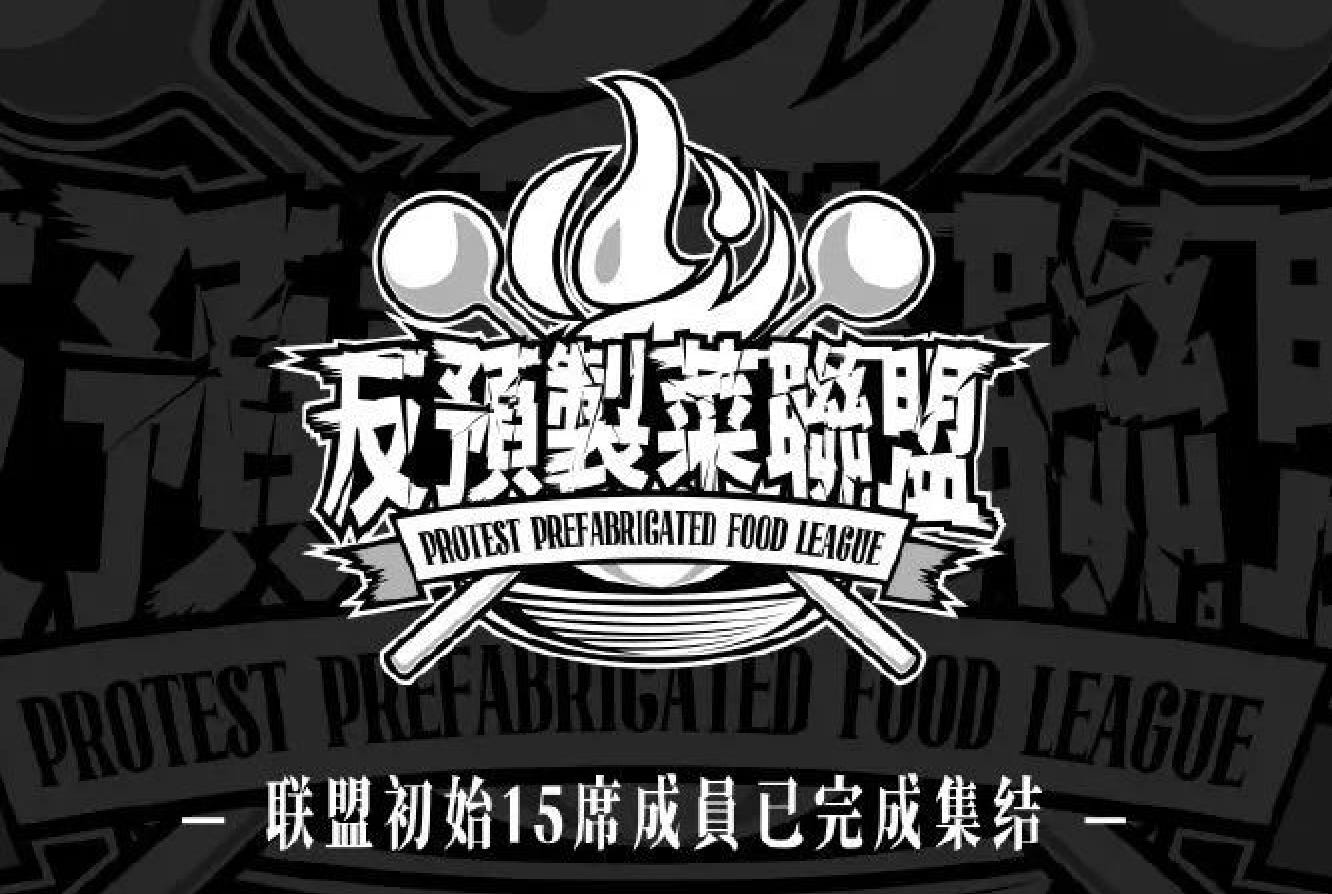A few things on my radar #24
The Return of Personalization >> AMap, Chicken Cutlet Brother and Anti-Pre-Made Meal Alliance
👏🙋Hello, hello! Thanks for reading The Momentum — an independent publication without ads or affiliate links. Feel free to subscribe to receive new posts and support my work!
AMap Opens Fire — the “Street Sweeping List” Empowers Local Independent Restaurants
In late September, AMap, an Alibaba subsidiary, announced free annual entry fees for all food and beverage merchants for one year. Merchants also receive traffic subsidies, dedicated customer service, and smart cashier systems.
This initiative follows AMap’s launch of the “AMap Street Stars” list and the small local eatery support program, designed to increase restaurant supply within AMap’s ecosystem.
By October 3, the AMap Street Stars list had attracted over 400 million users in just 23 days. Notably, many recommended restaurants are small mom-and-pop stores that were previously hard to find on Meituan.
This move by AMap introduces an intriguing new variable to the local services market.
It’s carving out a battlefield different from Meituan: rather than relying excessively on marketing and reviews for rankings, it uses new lists generated from AMap’s data advantages based on criteria like “repeatedly visited,” “specially traveled to,” and “loved by locals,” and even encourages users to discover those hidden gem shops where “the wine’s fragrance is trapped in deep alleys.” No doubly, for small shops that focus on culinary specialties rather than marketing budgets, this is undoubtedly a valuable empowerment, and it also makes consumer choices more diverse.
“Chicken Cutlet Brother” Goes Viral: A Phenomenon Under “Anti-Pre-Made Meal” Sentiment

A street vendor has become China’s latest internet sensation over the last week. His name is Li Junyong (李俊勇), a 48-year-old owner of a stall selling fried chicken cutlets in Jingdezhen (景德镇) in Jiangxi Province.
Li’s humor and genuine character have made him one of the hottest internet celebrities of the moment. His emphasis on food safety and use of fresh ingredients, combined with his affordable 6-yuan pricing, have led netizens to worry he isn’t making any profit—sparking strong support and resonance from audiences.
Chicken Cutlet Brother’s business model—characterized by low profit margins, fresh procurement, and maximum on-site emotional value—stands in stark contrast to Xibei’s high profit margins, pre-made meals, and aloof attitude.
Seriously—despite having no formal education or abundant capital, Chicken Cutlet Brother understands the essence of the restaurant business: good products and good service never go out of style.
“Anti-Pre-Made Meal Alliance” seeks to amplify its voice in public discourse but faces lack of support from authorities
A grassroots restaurant industry organization—the “Anti-Pre-Made Meal Alliance”—was established in Beijing in 2024, attracting significant attention and participation from brick-and-mortar operators.
However, after the pre-made meal controversy escalated, the government began intervening in interviews and publications about pre-made meals, frustrating a journalist who wanted to report in-depth on this alliance.
Mr. Guo, the founder of the alliance, once wanted to hold an “anti-pre-made meal exhibition,” but some event organizers considered the matter quite sensitive and difficult to move forward with.
From an industry perspective, pre-made meals meet societal demands for efficiency, cost-effectiveness, and standardization—a trend difficult to reverse, as China’s restaurant chain penetration rate still lags far behind developed countries. The development level of China’s pre-made meal industry directly influences the global competitiveness of Chinese restaurant brands—blindly attacking pre-made meals is not wise.
In my opinion, the real significance of this pre-made meal controversy lies in pushing the market to rebalance “efficiency” and “quality.” This upheaval reminds us all — after years of being brainwashed by standardized chain stores and their aggressive marketing, consumers are growing weary and beginning to rediscover the value of independent shops. This will make China’s food industry more diverse, prosperous, and creative — at the end of the day, much of the innovation in food and beverage comes not from clumsy big brands, but from those hidden street-side shops.




